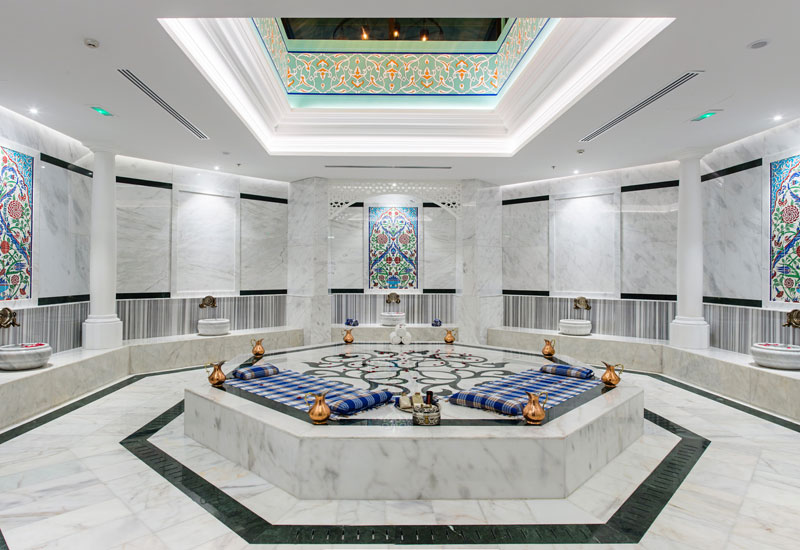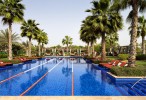 Turkish hammams are said to be the highlight for the next 12 months and beyond; pictured is the newly launched Turkish hammam at the Anantara The Palm Dubai Resort & Spa.
Turkish hammams are said to be the highlight for the next 12 months and beyond; pictured is the newly launched Turkish hammam at the Anantara The Palm Dubai Resort & Spa.
TRAINING
Training is a concern in all industries, and it’s the same for the spa and wellness sector. The industry as a whole is facing a major labour shortage, according to Moore. She says that spas are opening at a pace that the industry cannot keep up with.
She says: “The Global Wellness Institute stated that next year alone, the industry requires 600,000 therapists globally. The only way we can keep up with that sort of demand is to put more time and energy into promoting the industry and then training new recruits.”
Wagner says the therapists at his spa are all enrolled into in-house training workshops to fine tune their skills.
Blair notes: “The spa industry growth has a negative impact on the trained personnel. There are not enough trained spa personnel for the need prompted by the growth of spas worldwide. This may be due to the fact that there is a lack of a well-defined educational or career pathway. The industry has few spa-specific college level courses and training programme to train individuals in spa business. There is a shortage of technical business skills that industry leaders seek out in potential spa management. Spa companies that invest in resources to adequately train their team are few and far between, which means individuals are unlikely to be prepared for possible promotions.”
Al Kawasmeh says finding skilled personal is still a struggle in certain locations. Having experience in spas, he says, is not enough anymore. “You need scientific back ground and a higher level of education to keep up with the technological advancement in the field.”
Botha agrees, and says that when she arrived in the UAE four years ago, there was definitely a shortage of skilled spa therapists. However, the outlook is positive as she says there is a huge demand from the health and wellness community for trained therapists, which has reflected in the number of educational programmes that cater to this market.
Blair says that more and more emphasis should be placed on the execution of standards, best practices and staff training/education. “In other words, better and more consistent delivery of the spa experience is more important than is the invention of a series of new treatments. Greater time and attention to be devoted to ensuring that the spa personnel are better trained to deliver the experience that the spa goers now demands, particularly in a world with so many alternatives.”
Four Seasons Dubai’s Bluett says finding and retaining qualified staff is a significant and ongoing challenge. “Staff turnover rate in the UAE is vast. Our main aim is to motivate staff, to keep them happy and stimulated in their roles at the spa and wellness centre. Training is crucial — if not the most important thing for our staff. It is very important for them to understand the business model, the spa ethos and vision and mission and to keep them stimulated in the workplace. We offer consistent educational programmes, training and support combined with benefits and incentives.”
Moore concludes on this issue: “We have unemployment issues in many countries throughout Asia, the Middle East, Africa and Eastern Europe, so we need to look to these regions to start sourcing and training therapists. We are facing a shortage because the demand has outgrown the supply and we don’t have enough training facilities in these regions to produce therapists. Spas and hotels needs to look at seriously budgeting for training and recruitment or they are going to continue to lose revenue from turning away guests due to a lack of staff. These operations must also learn to deal with the issue of staff retention, so they don’t lose their trained team member to another spa.”

| Advertisement |








 Search our database of more than 2,700 industry companies
Search our database of more than 2,700 industry companies









